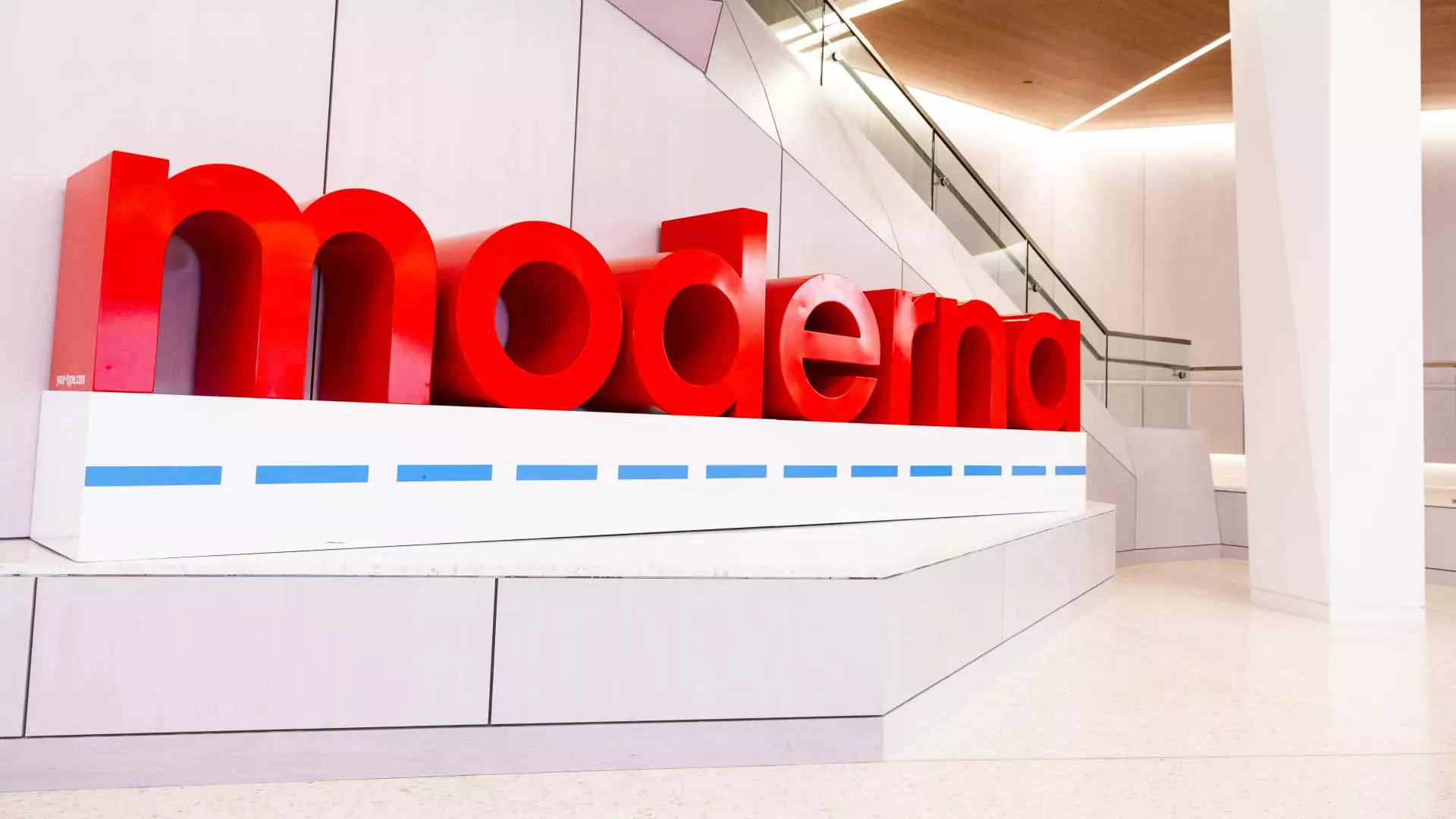In a refreshing turn of events, Moderna reported a surprising profit for the third quarter of 2023, shattering expectations held by Wall Street analysts. The biotechnology firm unveiled a net income of $13 million, translating to earnings of 3 cents per share. This stands in stark contrast to the staggering net loss of $3.63 billion, or a loss of $9.53 per share, observed during the same quarter in the previous year. Such a shift not only reveals a recovery phase but also highlights the effectiveness of the company’s rigorous cost-cutting measures, which aim to deliver $1.1 billion in savings by 2027, a much-needed goal following a pronounced decline in Covid-related business.
Moderna’s performance in the third quarter marks its first substantial revenue from its newly launched respiratory syncytial virus (RSV) vaccine, complementing its acclaimed Covid-19 vaccine. This expansion into different therapeutic areas is crucial for the company, as it seeks to mitigate the effects of diminishing revenues from the Covid vaccine. With the recent successful launch of the RSV vaccine, which garnered approval earlier this year, Moderna is strategically positioning itself to capitalize on the growing demand for respiratory vaccines.
As the demand landscape shifts post-pandemic, Moderna’s anticipated filings for its “next-generation” Covid vaccine and a novel combination shot targeting both Covid and influenza reflect a forward-thinking approach. This diversification is essential for the company’s long-term sustainability, particularly as it aims to expand its product lineup and maintain relevance in an evolving healthcare ecosystem.
In the third quarter, Moderna’s revenues reached $1.86 billion, slightly surpassing the $1.83 billion recorded during the same period last year. Notably, the lion’s share of this revenue came from its Covid vaccine, which generated approximately $1.2 billion in U.S. sales and around $600 million from international markets. Interestingly, the performance of the RSV vaccine fell short of analysts’ estimates, achieving only $10 million in U.S. sales. This discrepancy arises from the timing of its approval, which occurred later in the vaccination season, limiting the potential for widespread uptake.
Moderna’s Chief Executive Officer, Stéphane Bancel, attributed the surge in Covid vaccine sales largely to the early launch, which allowed for a more swift distribution of doses than in previous years. The company shipped out twice as many doses globally in the first week of the recent launch compared to last year, responding adeptly to market demand. This agility is indicative of Moderna’s operational capabilities and its commitment to meeting healthcare needs effectively.
Delving into the company’s financials reveals prudent cost management strategies at play. The cost of sales for the third quarter plummeted by 77% to $514 million year-on-year, primarily due to significant write-downs of unused Covid vaccine doses and restructuring efforts aimed at reducing the manufacturing footprint. Furthermore, research and development expenses were slightly reduced, reflecting optimized spending on clinical trials amidst the ongoing shift away from solely focusing on Covid vaccines.
Moreover, selling, general, and administrative expenses saw a notable 36% decline, further underscoring Moderna’s rigorous financial discipline. These cost reductions are pivotal for sustaining profitability and ensuring adequate margins as the company pivots towards a more diverse product portfolio.
Despite a bleak performance in recent months, mirrored by nearly a 50% drop in shares this year, Moderna remains optimistic about the future. The company maintains its full-year product sales guidance at approximately $3 billion to $3.5 billion, despite a cautious outlook concerning international sales. Analysts highlight a competitive atmosphere for respiratory vaccines in the U.S. market, compounded by the potential deferral of international revenues into 2025, presenting challenges for the biotech firm.
However, Moderna’s ambitious pipeline—boasting 45 products in development—positions it well for future growth. The endeavor to introduce ten new products over the next three years, including a standalone flu shot and innovative cancer vaccines, suggests a robust and promising trajectory.
While challenged by the evolving landscape of vaccine demand, Moderna’s recent financial performance reflects resilience and adaptability. The steadfast focus on diversifying its product offerings amidst a strategic push for cost efficiency presents a pivotal opportunity for the company to regain investor confidence and solidify its status as a leader in biopharmaceutical innovation.

